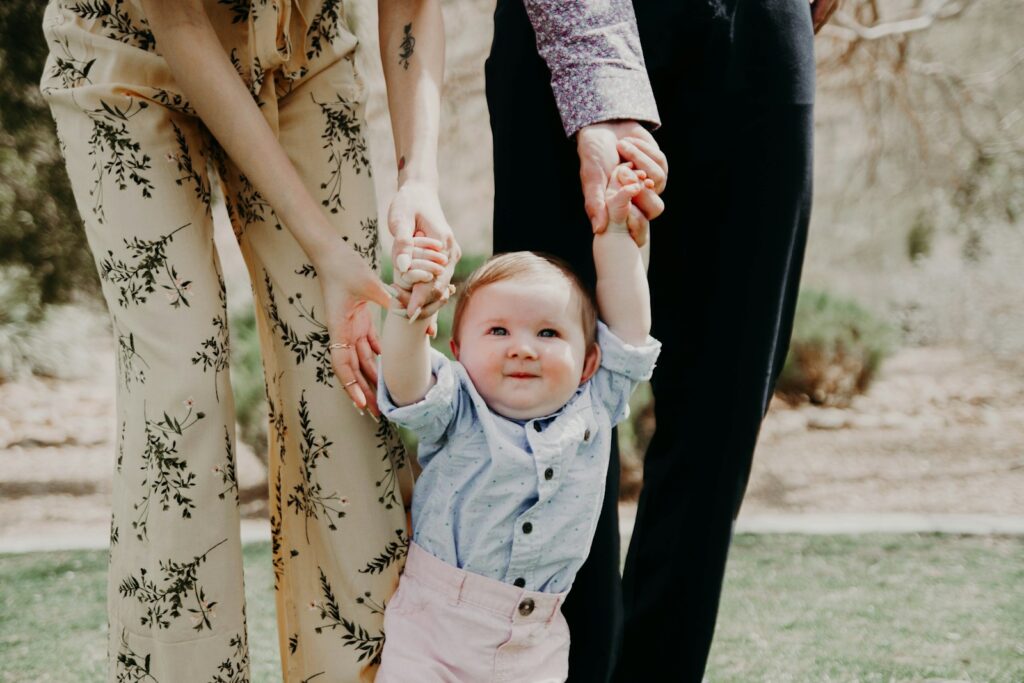
Hey there, money mavens and pop culture fanatics! Ever scroll through your feed and wonder about the lives of those super successful child stars? We see them owning mansions, launching empires, and living the dream. But let’s be real, the shiny veneer of Hollywood often hides a much more complicated reality, especially when it comes to managing serious cash before you can even legally drive a car.
Turns out, being a kid with a grown-up paycheck isn’t all rainbows and red carpets. Many of our favorite former child stars have shared some truly eye-opening stories about the wild world of money management they navigated (or tried to navigate!) from a ridiculously young age. From safeguarding earnings to dealing with family dynamics, these young talents often learned the hard way that fame comes with a hefty financial rulebook — one that nobody hands you when you sign your first contract.
So, buckle up, because we’re about to dive deep into 12 essential, sometimes shocking, lessons on money management straight from the lives of those who grew up in the spotlight. Get ready for some serious wisdom, a few “OMG, really?!” moments, and insights that will make you rethink everything you thought you knew about child stardom and financial smarts. Let’s get to it!

1. **Understand the True Cost of Your Career (Beyond the Paycheck):**You see the glitz and the glam, but what about the hidden costs? Being a child star isn’t just about big paychecks; it’s about the endless, often misunderstood, expenses required to keep a career machine running. These costs can quietly drain your funds faster than you can say “cut!”
Alyson Stoner, who started in showbiz at age three, knows this struggle intimately. After nearly two decades, they checked a bank account expecting a million-plus dollars, only to find nothing. Zip. Zero. This shocking discovery highlighted that even for the “absolutely frugal,” there are “loopholes that leave room for a child’s money to be mishandled,” often through “hefty expenses” that accumulate over years.
The cost of maintaining a successful Hollywood career is staggering, ranging from “$10,000 and $20,000 for different expenses.” Many artists lose money even while auditioning. It underscores that the assumption a child performs “for fun” is often far from the truth, especially when they are the primary breadwinner. The big takeaway: always question where your money goes. Get a clear picture of every expense, or risk finding yourself with fame but no fortune, just like Alyson Stoner.

2. **Guard Your Coogan Account Like a National Treasure:**For child actors, the Coogan account is a critical legal safeguard. A portion of a minor’s income is mandated to be set aside in a blocked trust, specifically to prevent parents or managers from misusing it. This sounds perfect in theory, but in practice, family financial struggles can complicate matters.
Naya Rivera’s memoir revealed how her family’s dire financial straits led to her becoming the “only one…who had any money.” With “tens of thousands” in her Coogan account, these funds became the family’s lifeline. She recounted making multiple court visits with her mom to “petition for permission” to withdraw money for basic living expenses, accepting this burden because the alternative was unthinkable.
Jena Malone’s story takes this a step further. At just 14, she sought emancipation and sued her mom, accusing her of squandering “more than $1 million” of her earnings due to “strange tax problems.” Her experience emphasizes that even with legal structures like trust funds, vigilance is crucial, and sometimes, fighting for what’s rightfully yours is necessary.

3. **Set Clear Financial Boundaries with Family, Even If It’s Tough:**When children earn substantial money, it’s natural to want to help family. However, a crucial lesson for many child stars is setting financial boundaries, preventing a complete role reversal where the child becomes the primary provider. This is a delicate and emotionally charged process.
JoJo Siwa revealed her parents’ deep fear she’d “take all of my money” and leave them “high and dry” at 18. While JoJo has since supported them, her story highlights the immense financial power a child can wield and the underlying anxiety it creates. Her mom’s gratitude for “buying us this new house” clearly illustrates this shift in dynamic.
Demi Lovato candidly shared their experience, retorting “‘I pay the bills!'” at 17 when grounded. As Drew Barrymore noted, “it’s the parent-child dynamic that gets completely reversed.” This immense burden and altered authority can be detrimental to healthy family relationships. Establishing clear boundaries, with professional guidance, can prevent future heartache and ensure financial decisions are made maturely.

4. **Prioritize Your Childhood (It’s Priceless, Unlike a Paycheck):**Imagine a childhood free from the crushing weight of supporting your entire family. For many child stars, this is a distant dream, as crucial developmental years are often sacrificed for fame and financial necessity. The lesson is simple yet profound: your childhood is a finite, invaluable resource that no amount of money can truly replace.
Zendaya, despite her success, admitted to experiencing her “angsty teenager phase now because I didn’t really have the time to do it before.” Becoming the family “breadwinner very early” meant she was “thrust into a very adult position,” missing out on carefree experimentation and even wishing she “went to school.”
Wil Wheaton’s account is heartbreaking. He told his mother daily, “I just want to be a kid,” only to be “gaslighted” and accused of being “selfish.” Cole Sprouse similarly stated he was “put into acting when we were 8 months old by our mother because we needed money,” confirming it was “never really my passion.” These stories underscore how easily a child’s fundamental right to a normal upbringing is overlooked for financial gain.

5. **Get Independent Financial Advice from Day One:**When a child earns adult money, trusting family with finances seems natural. However, the harsh truth is not everyone possesses the expertise or impartiality to manage the unique complexities of a child star’s earnings. Securing truly independent financial advice from the beginning is absolutely crucial.
Alyson Stoner’s shocking discovery of an empty bank account, after years of their mother “paying herself a monthly salary” and a “business team” mismanaging funds, illustrates this perfectly. Even with good intentions, some people “don’t understand the unique business structures of entertainment expenses,” creating “loopholes” for mismanagement.
Cole Sprouse’s experience further highlights this need, as his mother, while “artistic,” was “financially the most irresponsible woman ever,” leading to them “losing everything.” An independent professional can navigate legal complexities, identify conflicts of interest, and safeguard funds, ensuring your money works for *your* future, not just immediate family needs or inadvertent misuse.
Read more about: Fuel Your Entrepreneurial Journey: The 12 Essential Business Books Every Aspiring Founder Must Read by 25

6. **Recognize the Emotional & Psychological Price of Early Wealth:**Millions of dollars before puberty sounds like a dream, but managing immense wealth and responsibility at a young age carries a heavy emotional and psychological burden. This isn’t just about financial figures; it’s about the deep impact on a child’s mental health, self-worth, and overall development.
Zendaya, despite her current success, speaks of feeling “very tense” and unable to “enjoy all the things” due to carrying the weight “from being a kid and never really having an opportunity to just try .” Being an early family “breadwinner” forced her into an “adult position,” sacrificing a carefree youth for relentless pressure.
Bella Thorne vividly described the crushing weight of family homelessness, stating, “We were about to live physically on the street if I didn’t have that role.” This terror of survival, along with Keke Palmer’s realization that “if I didn’t have a job, who would have a job?”, creates unimaginable pressure. Early wealth and responsibility often lead to anxiety, identity confusion, and stunted emotional development, underscoring the vital need for mental health support alongside financial security for young stars.
Alright, you’ve survived the first six mind-blowing lessons from our favorite former child stars! Now, get ready to dive even deeper into the wild world of Hollywood finances and the often-hidden struggles that come with growing up famous. We’re talking about legal battles, protecting yourself from exploitation, battling public perception, and finding your true path. It’s not always pretty, but trust us, the wisdom gleaned is absolutely golden.

7. **Master Your Legal Rights (Especially Emancipation!):**Imagine being a teenager and having to take your own parents to court. Sounds like something out of a movie, right? Well, for some child stars, understanding and asserting their legal rights, including seeking emancipation, became a crucial step to regain control over their lives and their money. It’s a heavy move, but sometimes, it’s the only way to protect what’s rightfully yours.
Jena Malone’s story is a prime example of this dramatic, yet sometimes necessary, step. At just 14 years old, she sought emancipation from her mother and even sued her, accusing her of squandering “more than $1 million” of her earnings. This wasn’t just about rebellion; Jena faced “strange tax problems” and needed access to her trust fund. It was a “sink or swim situation,” highlighting how crucial legal understanding can be when things go sideways.
Her decision to become “legally responsible for myself” and “sign my own contracts” was a nine-month journey of proving her “mental and financial stability.” It shows the sheer determination and maturity required when a young star needs to untangle complex financial and legal knots. While challenging, Jena even noted that she and her mom developed “a better relationship now than ever before,” proving that sometimes, setting hard boundaries can lead to healing in the long run.

8. **Be Hyper-Aware of Industry Exploitation (It’s Scarier Than You Think):**Hold up, this one’s a tough pill to swallow, but absolutely essential. The entertainment industry, particularly for minors, can be a minefield of exploitation. Recent revelations have ripped back the curtain, exposing deeply disturbing truths about the predatory behaviors some young actors faced. It’s not just about money being mishandled; it’s about safety, dignity, and psychological well-being.
The chilling documentary “Quiet on Set” pulled back the curtain on the dark side of youth television, specifically at Nickelodeon. It revealed stories of mistreatment and predatory behavior that are frankly horrific. Celebrities like Drake Bell bravely spoke out about being ually abused by Brian Peck, a dialogue and acting coach. And Peck wasn’t the only one; production assistants Jason Handy and Ezel Channel were also identified as pedophiles who engaged in such acts while working on set. This isn’t just a few bad apples; it suggests a systemic failure to protect vulnerable children.
Beyond explicit abuse, the documentary highlighted how programs, even those “targeted toward children,” were “filled with ual innuendos and the sexualization of the characters that child actors portray.” There were even suspicions about producer Dan Schneider’s alleged “foot fetish,” with a “bizarre focus on feet” in many episodes. These subtle, pervasive forms of exploitation expose young viewers to inappropriate messaging and create deeply uncomfortable, even dangerous, environments for the child actors.
Alyson Stoner’s experiences further underscore this dark reality. They spoke of the discomfort of being in a “casting room where you’re playing opposite adults, and you’re being coached to come across as provocative.” They were “rewarded with maybe a callback if you showcased the right amount of skin.” This kind of pressure, combined with the lack of guardians on set for legal 18-year-olds, leaves “a lot of room for pushing the envelope, potential grooming and being taken advantage of.” Alyson’s powerful statement about “countless stories of young people who were hired to play one character, and upon showing up on set, they were slowly and systematically coerced into doing more than what was originally on the page” is a stark warning.

9. **Navigating the Tabloid Gauntlet & Public Scrutiny:**Imagine growing up with every awkward phase, every stumble, and every personal struggle splashed across headlines for the world to dissect. For child stars, navigating public scrutiny isn’t just part of the job; it’s a relentless, often traumatizing, aspect of their lives that can deeply impact their self-worth and mental health. The early 2000s, especially, were a wild west of “tabloid journalism,” and young celebrities were often caught in the crosshairs.
Lindsay Lohan’s journey is a heartbreaking example of how intense scrutiny can derail a life. When she struggled with legal issues and rehab, “tabloids turned her life into entertainment for readers.” The constant harassment from paparazzi and the sensationalized stories only “reinforced a cycle” that made it incredibly hard for her to recover. It’s a vivid reminder that these are real people, not just characters in a never-ending drama for public consumption.
The pressure wasn’t just about legal troubles; it extended to “unrealistic beauty standards.” Female celebrities faced “unflattering pictures of them being published as magazine headlines body-shamed them.” This relentless focus on appearance, behavior, and public appeal meant many internalized the idea that “their value depended on their appearance,” leading to “issues such as anxiety and self-destructing tendencies.” It’s a harsh lesson that your worth is not defined by public opinion, no matter how loud the tabloids get.

10. **Balancing Passion with Financial Necessity (The Real-World Hustle):**It’s easy to romanticize the idea of “doing what you love,” but for many child stars, their passion for performing quickly became intertwined with the very real, often terrifying, need to provide for their families. This isn’t just about artistic fulfillment; it’s about survival, and it teaches a profound lesson in balancing personal dreams with immense financial responsibility.
Sydney Sweeney’s story is an incredible testament to this hustle. Her family moved to LA for her acting dreams, but they ended up “losing a lot, filing bankruptcy, and even losing their family home.” So, what did young Sydney do? She worked as a Universal Studios tour guide, cleaned bathrooms in restaurants, and babysat “to help make ends meet.” She famously told Women’s Health, “It was hard because they were supporting my dream, and I couldn’t imagine doing anything else. I didn’t want to fail them.” Talk about dedication!
Her determination paid off, and once she found success, Sydney did something truly special: she “bought back her old family home for her parents.” This act perfectly encapsulates the tightrope walk between pursuing a dream and shouldering significant financial burdens. It’s a journey many young stars know well.
Similarly, Lenny Henry, who became “the family breadwinner” overnight at just 17 after winning a talent show, took on that responsibility “because I love my family.” He used his earnings to buy “a new fridge and pay for the house to be redecorated.” Jodie Foster, the youngest in her family, was the “main breadwinner” for her mom and three siblings by first grade, with “no other income besides me.” These stories remind us that for many, the glitz of Hollywood was secondary to the very real and immediate need to keep their families afloat, turning their art into a literal means of survival.

11. **Building Robust Support Systems (Because You Can’t Do It Alone):**Navigating the dizzying heights and treacherous lows of child stardom demands more than just talent; it requires a strong, reliable support system. From mental health professionals to trusted advisors, and even a compassionate family, having the right people in your corner can make all the difference when the pressure becomes unbearable. This isn’t just a nice-to-have; it’s a necessity for survival.
Alyson Stoner’s journey vividly illustrates the critical need for comprehensive support. After facing immense pressure, grueling schedules, and public nitpicking about their appearance, Alyson developed an eating disorder and “intense anxiety,” with “OCD tendencies forming.” They recognized they were “in such a degree of distress that if I didn’t get help, I was looking at potentially fatal consequences.” Seeking treatment at 17 was a brave and life-saving decision.
While Alyson discovered financial mismanagement by their “business team” and even their mother, they made the incredibly difficult decision *not* to pursue legal action against their mom. They felt “loyalty and compassion for the matriarch, who had also struggled with alcohol,” choosing to “not burn a bridge.” This emotional maturity in prioritizing family bonds over immediate financial retribution highlights the complex layers of a child star’s life and the importance of finding support to navigate these personal dilemmas, not just financial ones.
The sheer loneliness and isolation of early fame, coupled with unprecedented responsibilities, can be crushing. Having therapists, mentors, and friends who genuinely care – not just about your career, but about *you* – is vital. It’s about building a safety net that catches you when the industry’s conveyor belt threatens to swallow you whole.

12. **The Journey of Financial Recovery and Advocacy (Turning Pain into Purpose):**For many former child stars, surviving the unique challenges of early fame isn’t the end of the story; it’s the beginning of a powerful journey of recovery, reflection, and advocacy. Turning their personal pain into a platform for change, they teach us the ultimate lesson: to use your voice and experience to help others navigate the complex world they once found themselves in.
Alyson Stoner, after their shocking discovery of an empty bank account and battling an eating disorder, founded Movement Genius, an “online platform that aims to make mental health support more accessible.” This is a fantastic example of channeling personal struggle into a public good. Alyson now uses their platform to offer invaluable advice for parents, encouraging them to pursue “local community theater first” for their children, emphasizing “developmentally appropriate experiences” rather than the often brutal Hollywood machine.
Alyson also champions advocacy for the “next generation of child performers,” calling it “one of their most important roles today.” Their memoir, “Semi-Well-Adjusted Despite Literally Everything,” serves as both a personal account and a “cultural critique,” giving readers “an opportunity to learn about the intimate details of what happened on all those sets growing up.” It’s about healing and creating a better, safer path for those who follow.
Jennette McCurdy’s memoir, “I’m Glad My Mom Died,” is another poignant testament to this journey. By openly detailing how her mother “forced her into fame” and controlled “every aspect of McCurdy’s life,” leading to an eating disorder, Jennette became a powerful voice for survivors of parental exploitation in the industry. These brave individuals are not just recounting their past; they are actively shaping a future where child stars are better protected, better managed, and allowed to simply be kids. Their wisdom isn’t just simple lessons; it’s a blueprint for change.
Wow, what a journey! From the glitz of the red carpet to the nitty-gritty of Coogan accounts and the heartbreaking realities of exploitation, these 12 lessons from former child stars are a powerful reminder that fame isn’t always fair. But amidst the chaos and the challenges, there’s immense wisdom to be found. These stars, through their struggles and triumphs, have given us an invaluable manual for navigating the tricky waters of money, family, and self-worth in the spotlight. Whether you’re chasing your own dreams or just trying to manage your budget, their stories offer a beacon of insight and resilience. So, take these lessons to heart, protect your peace (and your pennies!), and remember: your value is priceless, far beyond any paycheck.



